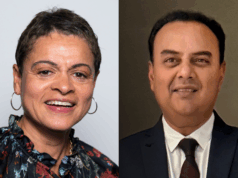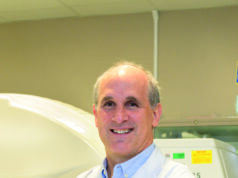BTG and the Society of Interventional Oncology (SIO) have expanded their commitment to the Immuno-oncology /interventional oncology research grant programme, by announcing a second round of funding available to investigators.
Interventional oncology, which includes a range of minimally invasive, image guided, locoregional therapies, and immuno-oncology, using the body’s own immune system to treat cancer, are two areas of scientific interest that have great potential for improving cancer therapy. The SIO grant programme is designed to fund cutting-edge research initiatives to investigate the potential for these therapeutic approaches to work in combination. Specifically, the programme is looking to fund research proposals that:
- Evaluate immune stimulation of interventional oncologic therapies
- Combination approaches to improve clinical outcome
- Improve the understanding of underlying mechanisms as to how different loco-regional therapies influence both adaptive and innate immunity
Earlier this year, four investigators were awarded grants at the World Conference on Interventional Oncology (WCIO) in Boston to further their cutting-edge research in the field. Their project proposals ranged from exploratory pilot projects to prospective clinical trials. The winners were chosen by the SIO Immuno-Oncology / Interventional Oncology Committee, a panel of international experts which includes both interventional radiologists and immuno-oncologists.
With a large number of high quality submissions and the level of interest in the programme to date, BTG and SIO have announced their intention to expand the programme to ensure more collaborative research will be funded and accelerate the pace of scientific advancement in the combination of interventional oncology and immuno-oncology therapies.
“We are very pleased with the ongoing generosity of BTG that will continue to enable the SIO to fund additional meritorious, cutting-edge research that combines the strengths of interventional oncology and immuno-oncology — two disciplines that hold great promise for improving cancer therapy,” said S Nahum Goldberg, SIO Interventional / Immuno-oncology Working Group chair, and vice-chair for Research and head of the Interventional Oncology Unit, Hadassah Hebrew University Medical Center in Jerusalem, Israel.
Melanie Lee, chief scientific officer of BTG, said: “We were delighted by the number of high calibre entries we saw from investigators in response to the original call for proposals, with lots of brilliant ideas of how to best combine locoregional and immunotherapies. We believe such approaches can help new agents to penetrate solid tumour mass, expose tumour specific antigens, and help the immune system to mount a response. Given the high levels of interest, we have decided to double our efforts and provide further funding in 2018 to support additional research in this area.”
To apply for a grant, completed applications need to be submitted online at www.io-central.org/grants by the 15 December 2017. The submission must include a detailed research plan that outlines a one to two year budget proposal and a letter of support from the department chair (for faculty applicants) or fellowship director (for trainee applicants). Grants of up to US$50,000 are available for one year exploratory pilot projects and up to US$100,000 for larger one to two-year projects.











